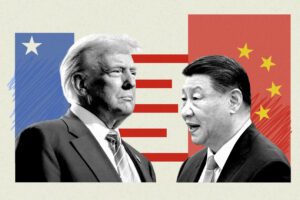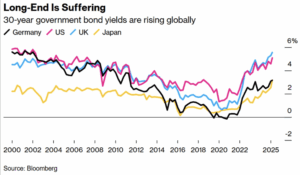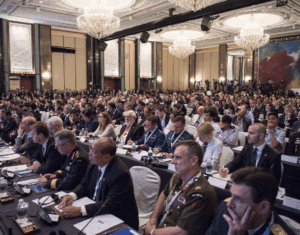For the global economy, rare-earth minerals and their access has become a crucial touchstone of any symbolic agreement. As senior U.S. and Chinese officials met in London today to rekindle high-level trade talks – following months of retaliatory tariffs and strained supply chains – this mercantilist backdrop looms large. The meeting, which is led by Chinese Vice Premier He Lifeng and U.S. Treasury Secretary Scott Bessent, initiates a line of communication between the two biggest economies in the world.
The diplomatic signals were heralded by markets. Oil prices stabilised, the dollar weakened, and Asian stocks increased slightly. However, nothing points to a departure from the longer arc of strategic divergence – or de-coupling – between the two stalwarts of global industry. Washington remains dedicated to strengthening regulations on Chinese tech companies and re-shoring vital industries, while Beijing seeks to bolster its state-led industrial policy through economic self-reliance.
Though these divergent pathways can seldom coincide, there are structural elements at play in the relationship. The quasi-economic war between the two nations is more a conflict between two systems – one based on centralised, state-supported growth and the other on liberal market institutions. Although rare-earth cooperation may provide temporary respite to this dichotomy, it cannot solve the more fundamental issues that shape the course of international trade for any nation – economic ideology.
The results of today’s meeting may not be revolutionary, yet they do point to a tactical pause in the onslaught wrought on both sides of the economic pendulum. Ultimately, the risk of politicised fragmentation (the idea that one reorganises international trade through political channels) is far greater than the transient back-and-forth of trade dynamics.




